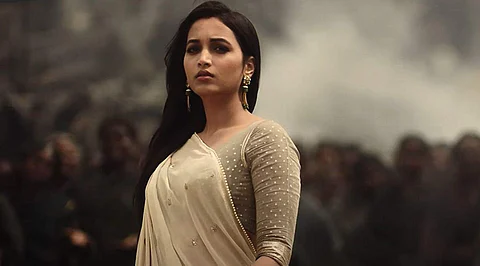
- ENGLISH
- TAMIL
- HINDI
- TELUGU
- MALAYALAM
- KANNADA
- OTT
- OTHERS

KGF 2 has changed the conversation around Indian cinema. Its box-office success (after Pushpa and RRR) has established the Indian cinema fraternity’s new catchphrase: ‘pan-Indian’. The question is, when will Tamil cinema get its own ‘pan-Indian’ project?
With all this talk about pan-Indian films, it’s natural to wonder what this term actually indicates. Does it indicate films made in multiple languages? Nope. KGF, Pushpa, and RRR were all made in one language and dubbed for release in multiple languages. Okay, so, does it mean films being celebrated across demographics? Not really, because then, films like Jai Bhim, Karnan or The Great Indian Kitchen should have made the cut too. Fun fact: The Great Indian Kitchen is currently being remade in Tamil, Telugu, and Hindi. But that’s not what pan-Indian success means. What it essentially boils down to are two things: a big-budget, mass-masala-commercial film and box office success.
So, where am I going with this? You see, the problem with portraying the success of such films as aspirational is that these ‘commercial’ films essentially glorify hypermasculine man, the one who observes no rules—not law, not order, not even gravity. You can see why these heroes appeal to the average Indian man. Isn’t it the dream for them to do whatever possible, and yet get worshipped? The other problem with these films is how these heroes leave no space for anyone else, especially women. That’s why you see that pretty much all of these ‘pan-Indian’ films contain vapid, if not problematic, representation of women. This is a space, after all, that has systematically excluded/exploited women to hype up the hero and feed male gaze.
A common argument presented in favour of commercial films like KGF or Pushpa is that they must be seen as ‘pure entertainment’. However, recent debates and conversations have seen another angle emerge amid all the noise. Bollywood voices have attributed the success of these films in the Hindi market to the hypermasculinity, while South fans have pointed out that it's perhaps because of the working-class Bahujan heroes. They have begun to celebrate the film’s ‘politics’, with some even going as far as to compare Rocky to Dr. BR Ambedkar. It’s great to have Bahujan heroes. But where is the intersectionality? Does having a working-class hero mean that we should not question a film’s patriarchy? Ambedkar has said that he would measure the progress of a community by the degree of progress women have achieved. Where are the women in KGF?
KGF 2’s Rocky kidnaps his love-interest, Reena. He calls her ‘entertainment’ and gets her clothes the wishes to see her in. The heroine eventually falls in love with him because… she has no other choice. The core of the KGF franchise is a mother’s dream for her son. Is there a bigger cliché in Indian cinema? It is celebrated because as you see in KGF, the mother acts only as a hype machine for the hero. She is needed to proclaim that the child will rule the world and further this ideal fantasy that no rule applies to him.
Point these things, and you get cuss words thrown back at you on social media by zealous fans. It's not new, but what’s new is how some say that ‘women should not be allowed to review these films’. For the longest time, cinema has been a male-dominated space. Women in it were character-assassinated, and women, even as viewers, couldn’t go alone to theatres. We are finally at a time when women are speaking out about the bias they face on and off-screen. The resultant 'criticism' is just people trying to keep the space from being inclusive.
Social responsibility is demanded from creators. Big-budget releases are being criticised for their political flaws. But with women characters, it’s like we enjoy going back in time. Why are women sacrificed at the altar of commercial success? Why are patriarchal, misogynist films normalised even though we question other forms of injustice? To paraphrase a line from KGF, it’s like our cinema is saying, “Patriarchy, patriarchy, patriarchy… I don't like it. I avoid. But patriarchy likes me. I can't avoid.”